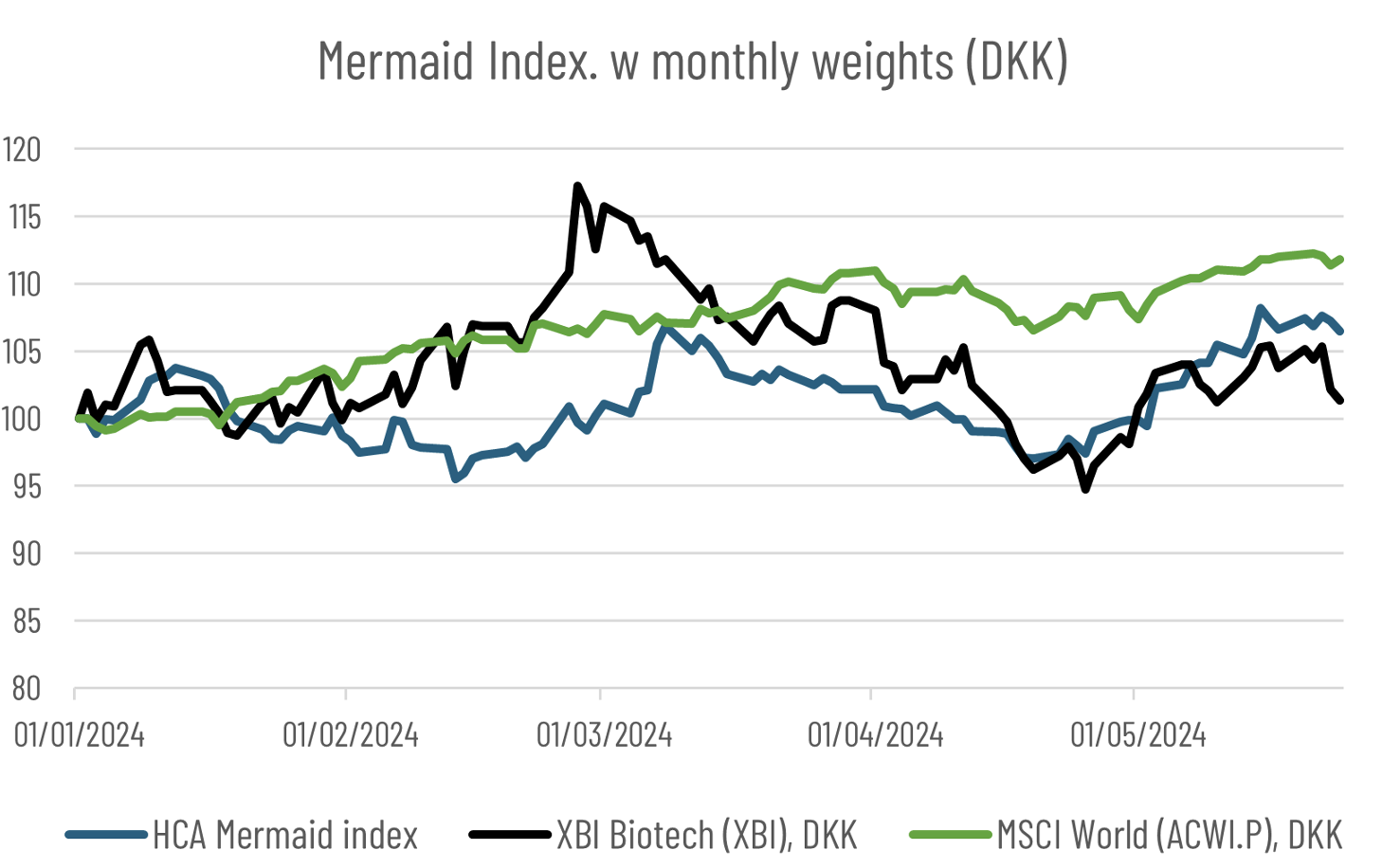Artificial Intelligence (AI) has been the investor buzzword for a while now, in particular in relation to technology companies that benefit directly from creating the AI algorithms, the servers that run the AI algorithms, or the chips that run the servers. Enormous shareholder wealth has been created for these first movers, who are creating the tools necessary for the benefits of AI to evolve. Investors are now speculating in which sector or company the next big AI-related shareholder wealth will be created as the focus moves from the AI-tool makers to the AI-tool users. And since it is still early days, there is plenty of room for speculation as nobody really knows what lies ahead for AI, neither the timing nor the magnitude of the value creation potential of using AI.
This has also had many companies in different sectors using AI phrases when they describe their businesses or processes, presumably in anticipation it will affect the perception of the company positively – even though it is too early to tell what the effect of using AI will actually be. The BioTech and Life Science sector is no exemption, as many established companies describe their already ongoing drug-developing processes as now being AI-aided or AI-enabled.
Listed BioTech and Life Science companies are not the only ones embracing AI. In April, California based, and privately owned BioTech company Xaira Therapeutics was established with USD 1 billion in funding behind it with a mission to revolutionize AI-based drug discovery by developing new AI tools in potentially the most advanced usage of AI in the BioTech and Life Science sector so far – according to Xaira Therapeutics and observers. Sceptics would argue that the fact that a private BioTech and Life Science company without any pipeline or current drug candidates can raise USD 1 billion illustrates how far the AI hype has come. Arguably, the people behind Xaira Therapeutics are well-established industry veterans, including a prominent former FDA commissioner, but the ability to raise USD 1 billion to develop ‘a good AI idea’ is spectacular regardless.
Contrary to the prospects of Xaira Therapeutics, as we have learned in many other sectors, using AI in established businesses within current work- and production-flows does not necessarily lead to a lot of revolutionizing new ways of doing business short term. Instead, and this is probably even more true for the heavily FDA-regulated BioTech and Life Science sector than many other sectors, the primary benefit from using AI will likely come from optimizing and making current operational workflow and developing processes more effective, reducing the time and personal resources spend thereby lowering costs. It might not sound as spectacular as hoping for AI to come up with a miraculous plan to cure cancer etc., but it addresses the increasing funding challenge many BioTech and Life Science companies are facing.
According to the FDA, they have so far received submission of over 300 product candidates where AI has been part of the initial drug discovery phases, screening for the right molecules etc. So, while this demonstrates that FDA is open to understand and accept usage of AI in different parts of the developing processes, FDA emphasizes that they still require trial data to be evaluated within the traditional regulatory framework of protocols. To conclude, BioTech and Life Science companies might be able to do their developing processes more effectively, but the data still needs to come from human testing, making AI usage the most relevant and having the biggest value effect in the early drug discovery phases. However, for a cash-burning BioTech and Life Science sector in constant search of additional funding, a faster, more effective, and less costly development process is perhaps just the kind of thing the sector needs right now. Not revolutionizing drug discoveries but saving costs here and now. For the more revolutionizing and spectacular AI opportunities that we all hope to see being unfolded in the BioTech and Life Science sector from a societal perspective, it is still too early to tell what will happen.

